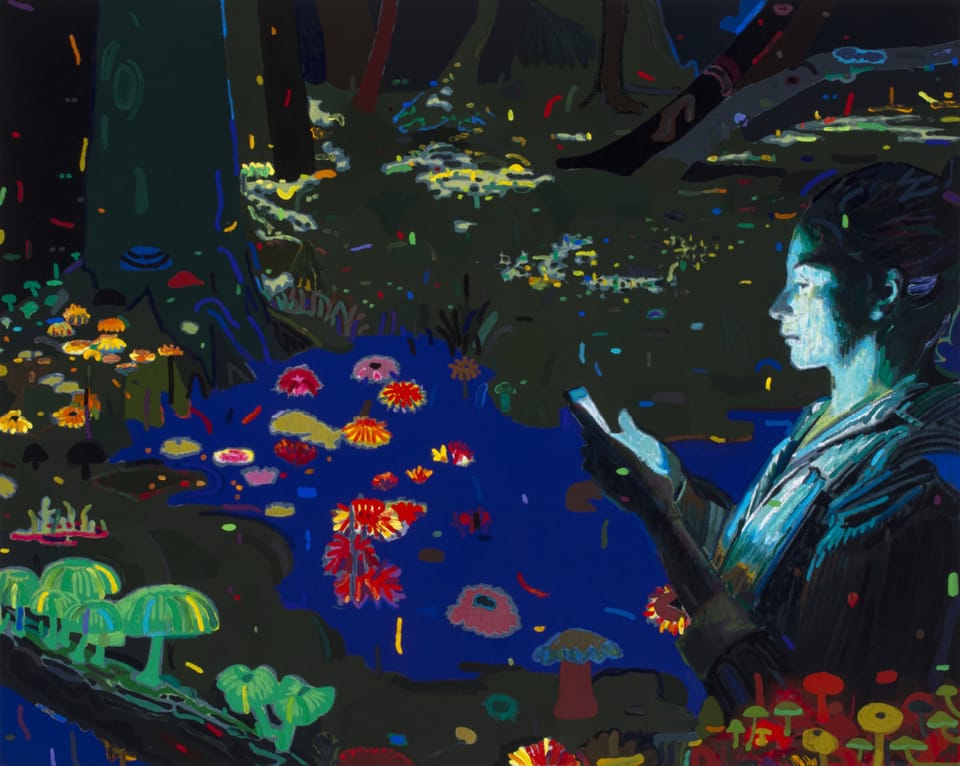Innovation, Entertainment and The Quest for Attention

The Evolution of the Dopamine Machine
Gutenberg thought he was just making books cheaper when he invented the printing press in 1440.
He had no idea he was starting an arms race for human consciousness that would last six centuries.
Radio beat newspapers because hearing someone's voice is different than reading their words. TV did the same for radio because moving pictures trump everything.
Then the internet showed up and said, "Hold my beer."
The internet didn't just add interactivity. It made entertainment personal, instant, and infinite. Netflix knows what you watched , when you paused, when you rewound, when you lost interest.
Some learns from every micro-expression on your face through your front camera.
We went from choosing between three TV channels to having algorithm-powered feeds that know us better than we know ourselves.
The numbers tell the story: the global entertainment industry has nearly doubled in a decade, from $1.39 trillion to a projected $2.6 trillion by 2025. This explosive growth is largely driven by our desire for experiences beyond reality.
How Virtual Experiences Fuel Innovation
Virtual experiences—like watching a movie, listening to music, or playing video games—release feel-good chemicals like dopamine and endorphins, similar to psychedelics.
This creates a sense of pleasure and relaxation that takes our minds off everyday life.
It's no surprise that the most popular movie genres are those filled with visual tricks and illusions, as they are most effective at helping us escape reality.
The demand for these virtual adventures is constantly growing. The global virtual reality (VR) market is expected to reach over $12 billion by 2024. This desire for novelty keeps us hooked. When experiences become redundant, we crave something new, which pushes creators to innovate. They must fuse creative ideas with modern technology to deliver high-quality, fresh content at scale.
This has led to an explosion of content, creating what we now call the "attention economy."
The Attention Wars
Your attention is worth about $200 per year to Google. Multiply that by billions of users and you start to understand why tech companies spend fortunes studying exactly how your brain works.
Herbert Simon figured this out decades ago: "A wealth of information creates a poverty of attention." He won a Nobel Prize for that insight, but I doubt even he imagined what it would become.
Every app, website, and platform is now engineered to be irresistible. They use the same psychological techniques that casinos use to keep people at slot machines. Variable reward schedules. Near-miss experiences. Social validation loops.
Your attention span has dropped to under nine seconds. Not because you're getting dumber, but because everything around you is designed to fracture your focus.
The winners aren't just the companies with the best content. They're the companies with the best attention-capture technology.
Innovation's Role in the Quest for Attention
The engine driving this entire cycle is technology, specifically the tiny, powerful devices running under the hood: microchips.
Microchips have revolutionized nearly every device we use, from phones to cars.
They make it possible to store, process, and transmit vast amounts of information, allowing for the creation of incredibly realistic digital simulations.
The networking and communication segment dominates the global semiconductor market, reflecting the constant exchange of information that defines our modern world.
For creators, better and faster chips mean they can produce higher-quality work in a fraction of the time.
A render that once took days can now be done in minutes. This increased production capacity allows them to reach larger audiences, fueling more demand and continuing the cycle of innovation.
What This Means
The companies winning this attention war are experience design companies.
Reality architecture firms. Consciousness engineering corporations.
They understand something profound about human nature: we don't just want to escape reality occasionally. We want to live in a reality that's more engaging, more rewarding, and more perfectly tailored to our individual desires than the actual world could ever be.
The question isn't whether this trend will continue. It's whether we'll recognize what's happening before we completely lose the ability to be satisfied by unaugmented reality.
Because once synthetic experiences become more compelling than real ones, why would anyone choose the real thing?
The attention economy isn't just changing entertainment. It's changing what it means to be human in a world where everything is competing for the most valuable real estate on Earth: the inside of your head.





